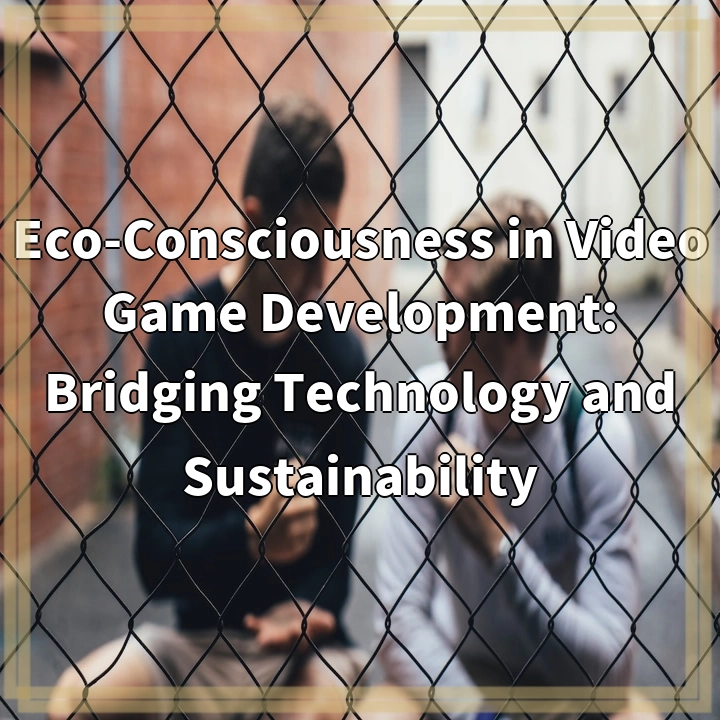
What is Eco-Consciousness in Video Game Development?
Eco-consciousness in video game development refers to the incorporation of sustainable practices and environmentally friendly principles in the design, production, and operation of video games. It involves considering the impact of game development on the environment and implementing strategies to minimize this impact. By adopting eco-conscious practices, game developers can contribute to a more sustainable gaming industry and help address environmental issues.
Real-World Problems Associated with Eco-Consciousness in Video Game Development
Despite the growing awareness of eco-consciousness in various industries, the video game development sector faces several challenges when it comes to sustainability. Some of the key problems include:
1. High Energy Consumption
Video game development requires substantial computing power, resulting in high energy consumption. This can contribute to increased carbon emissions and environmental pollution. Finding ways to reduce the energy requirements of game development processes is essential to minimizing its ecological footprint.
2. Electronic Waste
The rapid advancement of technology leads to frequent upgrades and replacements of gaming consoles, accessories, and devices. This results in a significant amount of electronic waste, which can be harmful to the environment if not handled properly. Developing more sustainable gaming hardware and promoting responsible e-waste management can help mitigate this issue.
3. Limited Representation of Environmental Issues
While the gaming industry has the potential to raise awareness about environmental issues, it often falls short in representing these challenges within its own content. Lack of representation or misrepresentation of environmental issues in video games can hinder the ability to educate and engage players in sustainability topics.
4. Resource Intensive Production Processes
The creation of video games involves resource-intensive processes, including graphic design, sound production, and data storage. These activities can contribute to deforestation, water pollution, and other ecological impacts. Implementing sustainable production practices, such as using renewable resources and minimizing waste, can help address these challenges.
5. Global Distribution and Climate Impact
The global distribution of video games involves transportation, packaging, and storage, which can have significant carbon footprints. Additionally, online gaming and server infrastructure contribute to energy consumption and the release of greenhouse gases. Finding ways to reduce emissions associated with distribution and online infrastructure is crucial in eco-conscious game development.
By acknowledging and addressing these real-world problems, the video game development industry can move towards a more sustainable future. Embracing eco-consciousness can not only reduce environmental impact but also promote social responsibility and inspire players to engage with environmental issues in meaningful ways.

Solutions for Eco-Consciousness in Video Game Development
To address the real-world problems associated with eco-consciousness in video game development, the industry can adopt several solutions and practices:
1. Energy Efficiency and Renewable Energy
Game developers can strive to optimize the energy consumption of their development processes by using energy-efficient hardware and software. Additionally, incorporating renewable energy sources, such as solar or wind power, into game development studios can significantly reduce carbon emissions.
2. Sustainable Materials and Recycling
Implementing sustainable practices in the choice of materials for gaming hardware and packaging can help reduce the environmental impact. Using recycled or recyclable materials can minimize waste and support responsible resource management. Moreover, promoting recycling programs for gaming devices and accessories can encourage proper e-waste disposal.
3. Environmental Storytelling
Game developers can seize the opportunity to raise awareness about environmental issues through compelling storytelling. By incorporating environmental themes and challenges into game narratives, players can learn about sustainability and be inspired to take action in their real lives.
4. Sustainable Production Practices
Embracing sustainable production practices involves minimizing waste, optimizing resource usage, and reducing environmental impacts. This can include adopting efficient data storage and management systems, using renewable or recycled materials, and implementing proper waste management strategies within game development studios.
5. Carbon Offsetting and Green Hosting
To mitigate the climate impact of global distribution and online infrastructure, game developers can explore carbon offsetting options to neutralize emissions. Additionally, partnering with green hosting providers can ensure that online gaming platforms are powered by renewable energy, reducing the environmental footprint of server infrastructure.
By implementing these solutions and practices, the video game development industry can make significant strides towards becoming more eco-conscious and contributing to a sustainable future.















